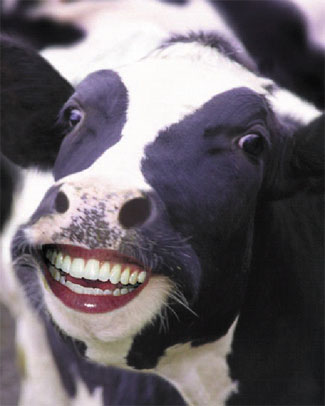The North County Times reports that Tony Martin and his wife, Mary McGonigle-Martin, of Murrieta, California, have filed a civil lawsuit in Fresno County after their then seven-year-old son was sickened with E. coli O157:H7 and hospitalized for two months in 2006.
According to the lawsuit filed Feb. 6, Chris developed hemolytic uremic syndrome, a common cause of kidney failure, due to E. coli infection.
Hospitalized from Sept. 7 to Nov. 2, 2006, Chris "suffered life-threatening injuries that have left him permanently injured," the suit states. The Martins have incurred more than $450,000 in medical bills.
The suit says the source of the E. coli was raw milk produced at Organic Pastures Dairy in Fresno and sold by a Sprouts store in Temecula.
Sprouts store owner Linda Watson was quoted as saying,
"There is no information I know of that any E. coli in any raw milk was sold at our store, or anywhere else for that matter."
A table of raw-milk related outbreaks is available at http://www.foodsafety.ksu.edu/articles/384/RawMilkOutbreakTable.pdf
Mark McAfee, owner of Organic Pastures Dairy in Fresno, said there is no proof that his company is at fault, as also alleged in the lawsuit, adding,
"When a person sues for a food-related illness, they must be able to show a connection between a product and the person. There isn’t a connection here. … Because there isn’t any connection, we feel confident we have a very strong defense."
Seattle attorney Bill Marler who is representing the Martins in their lawsuit, said,
"Under California law, the whole distribution chain is strictly liable. We don’t have to prove the store did anything wrong or was negligent, just that it was in the product. Selling unpasteurized milk is a risk stores shouldn’t be willing to take. … The message here is, whether it is raw or pasteurized milk, you have to be willing to take the responsibility of making sure your product is safe for your consumers."
Tony Martin was further quoted as saying,
"We live in a society where people are not that concerned with getting a pathogen and they need to be," and that some proponents of raw milk are "zealots" in the ways they push the product.
.jpg)

.jpg) Two of France’s top lait cru Camembert producers, Lactalis and Isigny-Sainte-Mère,
Two of France’s top lait cru Camembert producers, Lactalis and Isigny-Sainte-Mère, .jpg) Lactalis and Isigny-Sainte-Mere had argued for dropping the requirement that raw milk be used in the production of Camember to qualify for the AOC label.
Lactalis and Isigny-Sainte-Mere had argued for dropping the requirement that raw milk be used in the production of Camember to qualify for the AOC label. Food safety inspectors found the cheese being sold last week at Panaderia Real, 107 North Jennie Barker Road, in Garden City. The cheese was destroyed after testing confirmed that it was made from unpasteurized milk and that it was contaminated with Salmonella.
Food safety inspectors found the cheese being sold last week at Panaderia Real, 107 North Jennie Barker Road, in Garden City. The cheese was destroyed after testing confirmed that it was made from unpasteurized milk and that it was contaminated with Salmonella.
 Are humans safer when they’re happy? Are you?
Are humans safer when they’re happy? Are you?  On the
On the